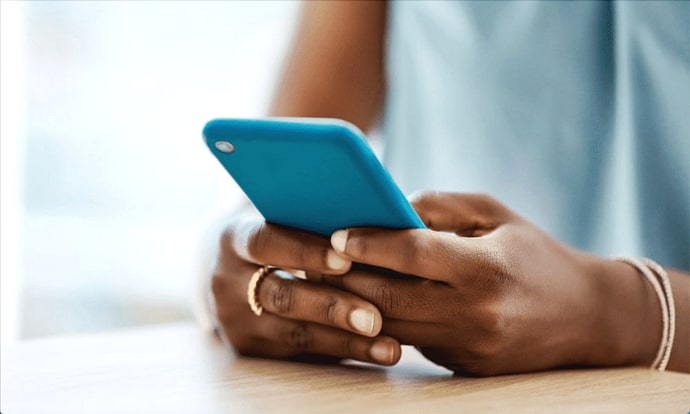Find My iPhone is a powerful and widely-used feature developed by Apple that offers a range of functions designed to help users locate and protect their iPhones. It serves as a valuable tool for safeguarding personal data, finding lost devices, and even deterring theft. The feature is seamlessly integrated into iOS devices and provides peace of mind to iPhone users worldwide. The primary function of Find My iPhone is to help users locate their lost or misplaced devices. By accessing the Find My iPhone app on another iOS device or through iCloud.com, users can track the real-time location of their iPhone on a map.

This feature is particularly useful when you misplace your phone or if it gets stolen. It not only assists in locating the device but also allows you to take appropriate action, such as playing a sound on the iPhone to help you find it nearby. In addition to locating a lost iPhone, Find My iPhone also offers a Lost Mode feature.
This mode allows users to remotely lock their device with a passcode and display a custom message on the screen, providing contact information for the owner. This can be extremely helpful in situations where the device may have fallen into someone else’s hands. Lost Mode also enables users to track the movement of their iPhone and receive notifications of its location updates.
Many of our users have wondered and come to us with the question of whether Find My iPhone notifies a user when you check their location. If you are also curious about this, keep reading!
In this blog, we will explore whether a person gets notified when you check their location on Find My iPhone. Let’s get started!
If I Check Someone’s Location on Find My iPhone, Do They Get Notified?
Let’s get straight to the point. If you check someone’s location on Find My iPhone, they do not receive any notification indicating that their location has been accessed. Find My iPhone is a feature developed by Apple that allows users to locate their lost or stolen iPhone, as well as share their location with specific people.
When you use Find My iPhone to view someone’s location, it is done discreetly without alerting the person whose location you are checking. The feature is designed to respect privacy and maintain the confidentiality of location information.
It’s important to note that in order to view someone’s location using Find My iPhone, you must have their consent or have been given permission to track their location. You should always obtain explicit permission before using location tracking features, as it respects the privacy and autonomy of the individuals involved.
How secure are your Apple iPhones?
Apple’s iPhones are known for their robust security measures, setting a high standard for protecting user data and maintaining privacy. They prioritize user privacy and implement stringent security measures when it comes to location sharing.
These measures ensure that users have control over their location data and can share it securely with trusted apps and services. To begin with, iOS incorporates a location services setting that gives users granular control over which apps have access to their location data.
When an app requests access to location services for the first time, users are prompted to grant or deny permission. Users can also manage these settings in the iPhone’s Privacy menu, allowing them to review and adjust location permissions for individual apps at any time.
Furthermore, iOS employs a While Using the App option, which enables users to limit an app’s access to their location only when the app is actively in use. This ensures that apps do not continuously track or access location data without the user’s knowledge or consent.
In addition, Apple’s privacy-focused approach extends to the handling of location data within the operating system. iOS uses strong encryption to protect location information, ensuring that it is securely stored on the device and during transmission.
Apple has also implemented features like Precise Location that allow users to choose whether an app can access their exact location or only approximate location information, adding an extra layer of control.
Another key security measure is Apple’s commitment to differential privacy. This technique ensures that individual user identities remain anonymous when analyzing aggregated location data. Differential privacy enables Apple to gather valuable insights and improve services without compromising the privacy of individual users.
Apple also emphasizes the importance of user consent and transparency when it comes to location sharing. With the introduction of features like App Tracking Transparency, users now have the ability to grant or deny apps permission to track their location across other apps and websites.
This empowers users to make informed choices about sharing their location data with third-party apps. Apple’s iPhone security measures basically for location sharing revolve around user control, consent, encryption, and anonymization. These measures allow users to determine which apps have access to their location data.
This also ensures the secure storage and transmission of location information and protects user privacy through techniques like differential privacy. By prioritizing user privacy and providing robust security features, Apple has established a reputation for safeguarding location data on its iPhones.
Additionally, Find My iPhone includes a robust security feature known as Activation Lock. When enabled, the feature prevents unauthorized users from erasing the device, activating it with a different Apple ID, or disabling Find My iPhone without entering the correct Apple ID and password.
This security measure acts as a strong deterrent to theft and significantly increases the chances of recovering a stolen device. Another noteworthy aspect of Find My iPhone is its ability to locate not only iPhones but also other Apple devices linked to the same Apple ID, such as iPads, Macs, and Apple Watches.
This comprehensive device tracking feature provides a unified solution for locating and managing all Apple devices from a single platform. Find My iPhone is an invaluable feature that enhances the security and protection of iOS devices. It offers a seamless and intuitive way to locate lost or stolen iPhones.
It also helps to remotely lock and display messages on the device, and secure personal data through Activation Lock. With Find My iPhone, Apple has provided a robust and user-friendly solution to mitigate the risks associated with device loss or theft, giving users peace of mind and increased control over their devices and personal information.
Summing it up
Well, that brings us to the end of this blog. Let’s quickly go through everything we have learned today to sum it up. We began our discussion by talking about Apple’s Find My iPhone feature as an incredible feature for helping users locate and protect their iPhones.
We then determined whether a user gets notified when you check their location on Find My iPhone, the answer to which is No. Lastly, we discussed the various security measures incorporated by Apple to protect the privacy and data of its users.
With this, we hope we were able to resolve all your doubts and queries about Apple’s Find My iPhone feature. If you have any more questions you would like us to answer, feel free to drop them in the comments below.
We will make sure to address them in our upcoming blogs, as always!
Also Read:





 Bitcoin
Bitcoin  Ethereum
Ethereum  Tether
Tether  XRP
XRP  Solana
Solana  USDC
USDC  Dogecoin
Dogecoin  Cardano
Cardano  TRON
TRON